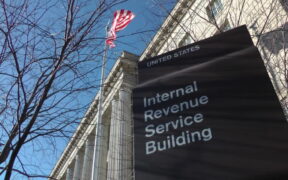
Some are on shaky ground with the IRS. Here’s what’s happening at the top private Christian universities.
Most of the largest private Christian universities now have some sort of NIL collective, including nonprofits and for-profits, or third-party exchanges serving as official partners with the schools.

Faith Christian Church in Tucson is the subject of controversy for its land purchases and its on-campus recruiting practices.
Faith Christian Church in Tucson, Arizona, has been accumulating plots of land in Summerhaven, a resort community on nearby Mount Lemmon, according to an investigative report by the Arizona Daily Star.

As Americans scrambled to make their year-end charitable contributions, they may have to do so without a key tool for understanding how those charities spend their money: their most recent tax forms.

At one point, churches fretted over losing their tax-exempt status for even unintentional missteps. But the IRS has largely abdicated its enforcement responsibilities as churches have become more brazen.

Dissolving a church or merging congregations can be complicated, not just emotionally or doctrinally, but financially and legally.

EDITOR’S NOTEBOOK: Seattle Pacific’s Lessons For Us All, Commending CURE International, and the “Seamless Garment”

Almost 11 weeks into tax season, the U.S. Internal Revenue Service continues to experience delays in processing last year’s tax returns. Millions of tax returns and filings are still backlogged, including those in the Form ...

The Taxpayer First Act, which passed in 2019, has provisions that clarify and give transparency to a number of Internal Revenue Service (IRS) operations, including some that impact nonprofits.




